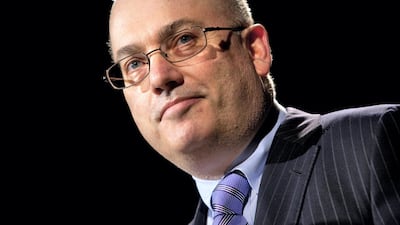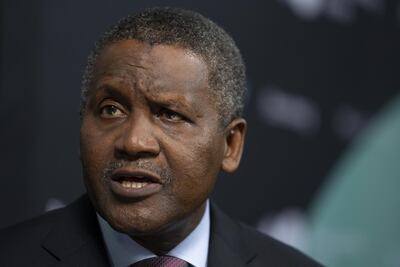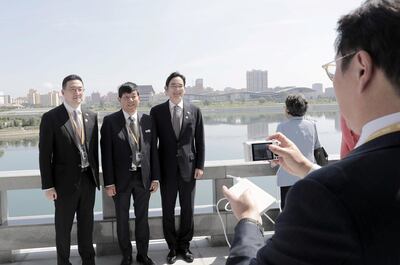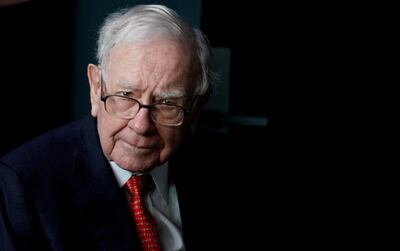Steve Cohen
Billionaire hedge fund manager Steve Cohen says a bear market is coming within two years, adding to a chorus of voices who say the US economy could falter by 2020.
“We’re definitely late cycle, and so at some point we’re going to enter a bear market, and it’s going to happen in the next year and a half, maybe two,” Mr Cohen warns. “I don’t think the returns over the next two years are going to be very good. If the market hangs in there, there’s just going to be marginal returns.”
The $3.24 trillion hedge fund industry lost 3 per cent last month and is down about 1.7 per cent this year as stock pickers to macro traders sputtered, according to Hedge Fund Research. Mr Cohen, who returned to the business earlier this year after a government ban on him managing capital for clients ended, describes how it was easier to make money during the early decades of his business because of the bull market in stocks and less competition in the industry.
Mr Cohen, 62, started his former firm, SAC Capital Advisors, in 1992 and it averaged returns of about 30 per cent annually. The hedge fund pleaded guilty to securities fraud in 2013 and paid a record fine as part of a US crackdown on insider trading on Wall Street.
Mr Cohen rarely speaks publicly about markets. In the recent wide-ranging talk, he touched on subjects including fatherhood, emerging artists and Chinese technology companies. He said the trend toward index investing isn’t going to go away.
“We see it on a daily basis where the liquidity in the markets are not what they used to be and that forces us to change what we do.”
Mr Cohen says he’s kept changing his business, even when it was doing well, to position it for the future, and that he’s doing that today at his current firm, Point72 Asset Management. The trader, who already invests his own money in startups through Point72 Ventures, says his goal is to build a “complete” venture capital operation and that he’s been doing a lot of private investing in artificial intelligence, machine learning, fintech companies and cyber security.
The fund manager described cryptocurrencies as “dicey,” though he says his son believes in the digital coins.
“At some point the blockchain is really going to matter,” Mr Cohen says. “The question is, can you make money from the blockchain? And I don’t know the answer to that. ”
Aliko Dangote
Aliko Dangote, Africa’s richest man, says he would consider buying a soccer club other than London-based Arsenal if controlling shareholder Stan Kroenke refuses to sell.
Mr Dangote has long said he wants to buy the Premier League team, of which he’s a fan, but only after he’s completed one of the world’s biggest oil refineries in Lagos, Nigeria. Also on his to-do list: the investment of billions of dollars in sugar, rice and dairy production in the West African nation and the sale of shares of his cement company in London.
“By the time we’ve finished, we’ll be a $30bn company in terms of revenue,” he says. “We’ll have an excess amount of cash to start playing around with.”
Mr Kroenke owns almost all of Arsenal after buying Russian billionaire Alisher Usmanov’s 30 per cent stake in August in a deal that valued the club at about £1.8bn (Dh6.61). It was funded with a £557m, two-year loan from Deutsche Bank The 71-year-old American is worth $8bn ,and also controls the National Football League’s Los Angeles Rams.
“I’m very attached to Arsenal but if he won’t sell, I might have to change,” says Mr Dangote, 61, and worth $11.1bn. “I’m very much a fan of football. I have to have a club. I don’t have to own Arsenal.”
The refinery is scheduled to start producing fuel in early 2020, and Lagos-based Dangote Cement will probably be listed in London around September next year, he told Bloomberg.
Arsenal is the sixth-largest soccer club in the world, generating revenue of $556 million in the 2016-17 season, according to Deloitte. It’s ranked fifth in this season’s Premier League, and last lifted the trophy in 2004.
Koo Kwang-mo
LG Chairman Koo Kwang-mo would be a billionaire in most countries.
The 40-year took the helm of LG Group, one of South Korea’s largest conglomerates, after his father died in May. He became the largest shareholder of LG Corporation, the holding company of the global tech and chemical powerhouse that produces myriad products, including vacuum cleaners and smartphones, when he inherited his father’s 8.8 per cent stake, according to a filing. Mr Koo now owns 15 per cent of the company, valued at $1.55bn.
But this is Korea, where the inheritance tax is among the world’s highest. And, in what is perhaps a rare occurrence for the nation’s moneyed elite, the family plans to pay the bill in full.
Death taxes can be as high as 50 per cent in South Korea when inheritance exceeds 3 billion won (Dh9.7m). An extra 20 per cent tax follows when passing down shares owned by the largest stakeholder.
That means Mr Koo faces an inheritance bill of more than $630 million, according to calculations by Bloomberg. Along with his two sisters, who got a 2.5 per cent stake in LG Corporation from their late father, they’re collectively liable for more than 900 billion won.
The family plans to pay the full tax over the next five years, while the first payment will be made by the end of this month, LG Corporation said in a statement.
While the amount will mark the largest death-tax payment made in the country, it’s a rare move by the country’s chaebols to fully accept the burden. Some of the country’s wealthiest families have come under public scrutiny for the ways they have skirted inheritance taxes. Such maneuvers involve charity foundations and setting up new businesses in their children’s names.
Warren Buffett
Warren Buffett’s Berkshire Hathaway is betting big on banks.
The billionaire’s company piled more than $13bn into those stocks in the quarter, making Berkshire a major shareholder in four of the five largest US banks, according to a regulatory filing. Berkshire disclosed a new stake in JPMorgan Chase and increased bets on Bank of America and Goldman Sachs Group.
Mr Buffett, 88, has long been one of the most influential bank investors and has been diversifying his bets in the industry. He’s already near a regulatory cap with a 10 per cent stake in Wells Fargo, and is now also the biggest shareholder in Bank of America, US Bancorp and Bank of New York Mellon.
A strong US economy, rising interest rates and corporate tax cuts have propelled profits at the nation’s biggest lenders to record levels. Still, October’s market declines meant the early returns on Berkshire’s latest bets aren’t the best - shares of six of its eight largest bank holdings are down so far in the fourth quarter.
Berkshire also disclosed new investments in PNC Financial Services Group and Travelers, meaning three of the conglomerate’s four new investments were financial firms, with Oracle being the exception. Shares of all four companies rallied in late trading.
The billionaire investor has been struggling to find large acquisitions to put a more-than $100bn pile of cash to work. In the third quarter, that meant more money flowed to stocks, including buying back Berkshire’s own shares. His net purchases of stocks in the period was the most he’s spent on that in more than four years.




